Home Remedies For Dry Eyes: 15 Soothing Treatments To Try
Fix dry eyes and ease the associated irritation with easy-to-follow natural ways.

Image: Shutterstock
Dry eyes develop when the tear glands in your eyes don’t produce enough tears to moisturize your eyes. Unfortunately, they leave you with an itchy, dry, and burning sensation in your eyes. But do not worry, these simple home remedies for dry eyes can relieve the symptoms and keep your eyes lubricated and clean. If you notice that the dry eyes persist for a while, it may be the symptom of an underlying medical condition and require medical intervention. In this article, we discuss some of the causes along with the best 15 remedies one can try to treat dry eyes. Scroll down to know more!
In This Article
What Is Dry Eye?
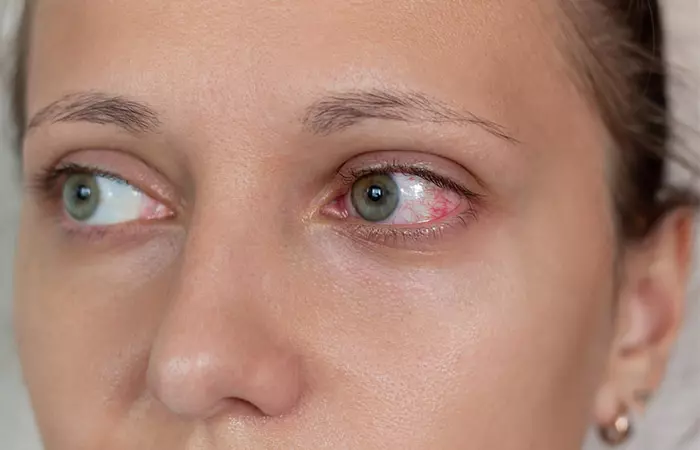
Dry eye is a condition in which an individual is unable to produce enough tears to lubricate or nourish the eyes. This condition is also referred to as dry eye syndrome or keratoconjunctivitis.
Your eyes always need a layer of tears coating them to keep them lubricated and avoid the entry of dust, allergies, and other irritants. A lack of this layer can lead to dry eyes and irritation in the affected person’s eyes.
Before we delve into the remedies, it’s important to understand the condition better. Read on to learn about the types of dry eyes.

Key Takeaways
- Reduce your screen time to prevent your eyes from getting dry.
- Add omega-3 fatty acids to your diet to increase the lubricating layer in your eyes.
- Vitamin A is essential for healthy eyes, so start eating eggs, carrots, spinach, and more.
- Try an artificial tear solution to give moisture to your eyes and keep them from drying out.
Types Of Dry Eye Disease
Dry eye disease (DED) is a multifaceted condition that can be of several types, each exhibiting distinct characteristics (1), (2):
- Aqueous Deficiency Dry Eye: Results from insufficient tear production by the lacrimal glands and leads to an inconsistent aqueous (watery) layer on the eye surface
- Evaporative Dry Eye: Results from meibomian gland dysfunction and involves an inadequate lipid (oil) layer in tears, allowing rapid evaporation of the aqueous layer and causing dryness
- Mixed Dry Eye: Combines the characteristics of both aqueous deficiency and evaporative dry eye, and causes inadequate tear quantity and quality
- Sjögren’s Syndrome Dry Eye: An autoimmune disorder that leads to inflammation and dryness in the eyes and mouth
Dry eyes could be a result of various factors. Some of the most common causes are discussed below.
What Causes Dry Eyes?
The common causes that lead to the drying of your eyes are:
- Constant exposure to wind or dry air
- Dysfunctional tear glands
- Allergies
- Previous eye surgery
- Use of medications, such as antihistaminesi A class of drugs that help relieve symptoms of allergies like hay fever, common cold, and conjunctivitis. , decongestantsi Medicines that can provide short-term relief from a blocked or stuffy nose caused by cold or flu viruses. , contraceptive pills, or antidepressants
- Aging
- Not blinking for a long time
- Long-term use of contact lens
- Staring at the computer screen for too long
- A deficiency in vitamins A and D
- Hormonal therapy and pregnancy
- Medical conditions like hypothyroidism, allergies, arthritisi An inflammatory condition affecting the joints and the tissues around them, causing swelling, stiffness, and pain. , and immune system disorders
 Did You Know?
Did You Know?Dry eyes can be quite irritating in the long run, given the irritating symptoms that surface with the onset of this syndrome.
Symptoms Of Dry Eyes
The most common dry eye symptoms include:
- A stinging and burning sensation in your eyes
- Pain in the eyes
- Eyes become irritated and red
- Unusual tearing of the eyes
- Blurry vision
- Eyes feel dry and sandy
Ashley Coates, a blogger, shared his experience of dry eyes and the way it has impacted his life in his blog. He said, “Facial sensitivity is getting ever more extreme and making it impossible to lie flat on a pillow, incredibly. A dull ache is accompanied by flashes of pain. Just touching parts of my face can be extremely sensitive (i).”
Dry eyes are not only exasperating but can also interfere with your day to day life. Hence, it is best to get rid of this problem at the earliest. Given below is a list of home remedies that can help you treat dry eye and its symptoms safely.
15 Home Remedies For Dry Eyes
- Castor Oil
- Coconut Oil
- Vitamins And Nutrients
- Cucumber
- Chamomile Tea
- Fennel Seeds Tea
- Yogurt
- Aloe Vera
- Essential Oils
- Olive Oil
- Fish Oil
- Flaxseed Oil
- Green Tea Extract
- Honey
- Hot Compress
1. Castor Oil
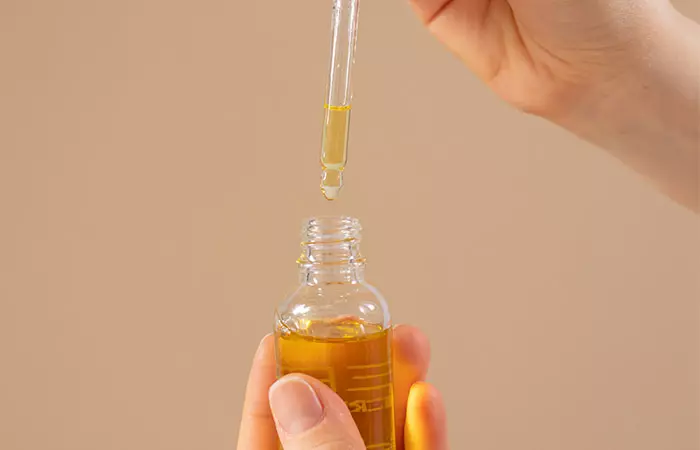
Castor oil is derived by pressing the seeds of the castor plant (Ricinus communis), and it contains high levels of ricinoleic acid. This imparts naturally lubricating properties to it. It also acts as an anti-inflammatory agent that relieves the burning and itching associated with dry eyes (3), (4).
You Will Need
1-2 drops of cold-pressed, organic castor oil
What You Have To Do
- Put a drop or two of a 100% organic castor oil in each eye.
- In case of unavailability of pure castor oil, you can also use lubricating eye drops made of castor oil.
How Often You Should Do This
Do this 2-3 times daily.
2. Coconut Oil
Coconut contains fatty acids, like capric acid and lauric acid, that are beneficial for your skin. They are also extremely moisturizing and anti-inflammatory and can hence be used to provide instant lubrication to dry and itchy eyes (5).
You Will Need
A few drops of 100% organic virgin coconut oil
What You Have To Do
- Put a few drops of 100% organic virgin coconut oil in both your eyes.
- Blink a few times and let your eyes absorb the oil.
How Often You Should Do This
Do this every morning and night.
3. Vitamins And Nutrients
Dry eye syndrome can also be a result of any vitamin deficiency. Studies have proved that the deficiency of vitamins D, B12, and A is related to the development of the condition (6), (7), (8).
Hence, include foods rich in these vitamins in your diet. Foods like egg yolks, orange juice, cereals, orange juice, carrots, spinach, broccoli, and butter are rich sources of vitamins D and A.
You can also increase your intake of foods rich in omega-3 fatty acids, like sardines, salmon, mackerel, spinach, soybeans, and chia seeds. Omega-3 fatty acids boost the production of the lubricating layer of your eyes (9). You can also take supplements for these nutrients after consulting your doctor.
4. Cucumber
Cucumbers are widely used for treating dry eyes. They are rich in water that helps soothe your eyes (10). They also contain vitamin A, the topical application of which is a proven remedy for dry eyes (11).
You Will Need
1 cucumber
What You Have To Do
- Cut a chilled cucumber into round slices.
- Place them on closed eyes for immediate relief.
How Often You Should Do This
Use the cucumber slices 2-3 times daily to relax and soothe your eyes. Alternatively, if you don’t have cucumber, potato slices are another remedy used for reducing puffiness around the eyes.
5. Chamomile Tea
Chamomile is a great way to relieve dry and inflamed eyes due to its relaxing and calming effects and natural anti-inflammatory and soothing properties
(12), (13). It can help replenish the lost moisture in the eyes and reduce the irritation caused by the condition.
You Will Need
- 1 teaspoon of dried chamomile herb
- 1 cup of hot water
- Cotton pads
What You Have To Do
- Add a teaspoon of dried chamomile herb to a cup of hot water.
- Allow it to steep for at least 10 minutes.
- Strain and cool it in a refrigerator.
- Take a couple of cotton pads and dip them in the chilled tea.
- Place them on your closed eyes and leave them on for 10 to 15 minutes.
How Often You Should Do This
You can do this 3-4 times daily until you obtain relief.
6. Fennel Seeds Tea
Fennel seeds contain anethole, an organic compound. The presence of anethole, flavonoids, and phenolics imparts anti-inflammatory and soothing properties to fennel seeds (14), (15). The anti-inflammatory activities of fennel seeds can help in reducing the inflammation and irritability, and their soothing properties can be used to retain moisture in your eyes.
You Will Need
- 1 teaspoon of fennel seeds
- 1 cup of boiling water
- Cotton pads
What You Have To Do
- Steep a teaspoon of fennel seeds in a cup of boiling water for 10 to 15 minutes.
- Allow it to cool a bit.
- Dip two cotton pads in the warm fennel tea and place them on your eyes.
- Leave them on for at least 10 minutes.
How Often You Should Do This
Do this 2-3 times daily.
7. Yogurt
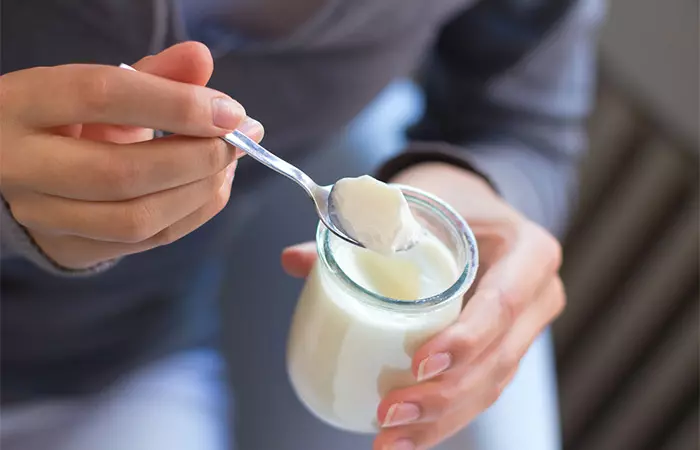
All dairy products, including yogurt, are known to benefit dry eyes. It is a rich source of B vitamins and vitamin D (16). The consumption of these vitamins is proven to improve and treat dry eye syndrome naturally.
You Will Need
1 cup of plain yogurt
What You Have To Do
Have a cup of plain yogurt.
How Often You Should Do This
Consume yogurt at least once daily.
8. Aloe Vera
The benefits of aloe vera are no secret. Aloe vera contains bioactive compounds like ethanol and ethyl acetate that exhibit anti-inflammatory and healing properties (17), (18). These properties can prove to be quite helpful in treating dry eye and its symptoms. In addition to this, aloe vera is also a natural antioxidant that can protect your eyes from free radical damage (19).
Caution: Make sure that it does not get inside your eyes as it can irritate.
You Will Need
Aloe vera gel
What You Have To Do
Take a little aloe vera gel and apply it to your eyelids.
How Often You Should Do This
Do this 2 times daily.
9. Essential Oils
a. Lavender Essential Oil
Lavender oil has anti-inflammatory, antioxidant, and analgesici A group of drugs, also called painkillers, which can relieve pain by selectively blocking nerve impulses. properties (20). Dry eyes often result in irritation, and lavender oil can provide instant soothing and relief from it.
You Will Need
- 3-4 drops of lavender essential oil
- 1 cup of warm water
- A clean washcloth
What You Have To Do
- Add a few drops of lavender oil to a cup of water.
- Mix well and dip a clean washcloth into this solution.
- Wring out the excess water and place it on your eyes.
- Keep it on for 5 to 10 minutes and then repeat the process.
How Often You Should Do This
You can do this 2-3 times daily.
b. Chamomile Oil
The properties of chamomile essential oil are quite similar to that of chamomile tea. It has anti-inflammatory properties (21). The oil is also widely used to treat allergic skin conditions like dermatitis (22). Hence, it may help relieve dry eyes as well.
You Will Need
- 3-4 drops of chamomile oil
- 1 cup of warm water
- A clean washcloth
What You Have To Do
- Add a few drops of chamomile oil to a cup of warm water.
- Mix well and dip a clean washcloth into this solution.
- Place this over your closed eyelids and leave it on for 10 minutes.
How Often You Should Do This
You can do this multiple times a day.
10. Olive Oil
Olive oil contains fatty acids, like oleic acid and linoleic acid (23). It also exhibits antioxidant and anti-inflammatory properties (24). Hence, it may help in lubricating and replenishing the lost moisture in your eyes and reduce irritation and inflammation.
You Will Need
A few drops of virgin olive oil
What You Have To Do
- Take a few drops of virgin olive oil on your fingertips.
- Massage it gently on your closed eyelids and cover them with your hands for a couple of minutes.
- Do not wash off the oil. Allow it to be absorbed by your skin naturally.
How Often You Should Do This
You can repeat this process 2-3 times daily.
11. Fish Oil
Fish oil is one of the best remedies to treat dry eyes naturally. It is a rich source of omega-3 fatty acids, which, as discussed earlier, help promote vision and retinal health (25), (26). However, make sure you consult your doctor before taking these supplements.
You Will Need
1000-1200 mg of fish oil supplements
What You Have To Do
Consume two capsules of 1000-1200 mg fish oil capsules.
How Often You Should Do This
Do this once daily.
12. Flaxseed Oil
Flaxseed oil is the richest source of omega-3 fatty acids. It contains alpha linoleic acid (ALA), which is converted into two different omega-3 acids, called eicosapentaenoic acid (EPA) and docosahexaenoic acid (DHA). Both these omega-3 fatty acids can help treat dry eye and its symptoms (27).
A study found that supplementation with flaxseed oil(1-2 g/day) helped reduce dryness of the conjunctivai A thin membrane that lines the eyes and produces mucus and tears to keep them lubricated. in people with Sjögren’s syndrome (29). Sjögren’s syndrome is a condition characterized by dry eyes and mouth.
You can also increase your intake of flaxseeds for added benefits. Flaxseed supplements are also available. It is recommended that you consult a physician before going ahead with flaxseed oil supplements.
13. Green Tea Extract
The topical application of green tea extract can help in treating dry eyes (29). The epigallocatechin gallate (EGCG) in green tea exhibits anti-inflammatory activities that can help inhibit the inflammation that often accompanies a dry eye. Green tea extract is also a natural antioxidant and can prevent further irritation of your eyes.
You Will Need
- 1-2 green tea bags
- 1 cup of hot water
- Cotton pads
What You Have To Do
- Put the green tea bags in a cup of hot water.
- Let it steep for 10 to 15 minutes.
- Allow it to cool a bit.
- Dip two cotton pads into the green tea and place them on your closed eyelids.
- Leave it on for 5 to 10 minutes and then repeat the procedure.
How Often You Should Do This
You can do this multiple times daily.
14. Honey

Honey gels and eye drops are widely used to treat many ocular ailments (30). The antiseptic and anti-inflammatory properties of honey can help treat dry eyes and also prevent further infection (31). A study showed that honey eye drops could reduce the symptoms of dry eye in contact lens wearers (32).
You Will Need
- 1 tablespoon of 100% organic honey
- 1/2 cup of pre-boiled and cooled water
What You Have To Do
- Add a tablespoon of 100% organic honey to the water.
- Mix well and put 1-2 drops of this solution into your eyes.
How Often You Should Do This
You can do this 2-3 times daily.
15. Hot Compress
The moisture and warmth of hot compresses can help increase the thickness of the tear film, thus relieving dry eyes (33).
You Will Need
- A clean cloth
- A bowl of warm water
What You Have To Do
- Soak a clean cloth in a bowl of warm water.
- Wring the excess water and place the soaked cloth on your eyes for 5 to 10 minutes.
How Often You Should Do This
Do this multiple times daily.
Caution: Many people use turmeric drops, rose water, witch hazel, calendula, and black currant seed oil for various eye ailments. However, these ingredients should only be used on recommendation by a doctor. While they may have moisturizing benefits, if used incorrectly these remedies may cause side effects. It is essential to not use random home ingredients in the eyes, as it can cause eye damage, irritation, adverse reaction, and vision damage.
When To See Your Doctor
If these remedies do not offer relief even after continued use, consult your healthcare provider immediately to avoid any serious eye conditions. Ask your doctor for prescribed eye ointments or drops for immediate relief.
These remedies can help you manage dry eyes with their natural healing properties. Listed below are a few preventive tips that can speed up your recovery and prevent the recurrence of this condition.
Best Tips For Preventing Dry Eyes
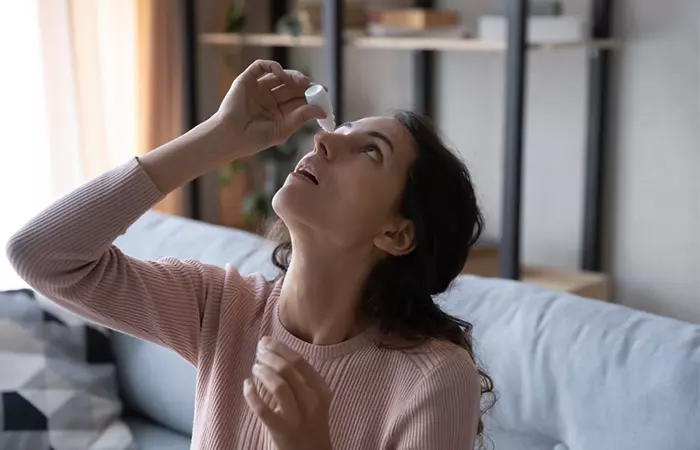
- Avoid exposing your eyes to dry air and strong winds.
- Use a humidifier inside your house.
- Take breaks during long hours of visual activity to rest your eyes.
- Use artificial tears to keep your eyes moist.
- Avoid smoking.
- Avoid the glare coming from computers or cellphones. Use anti-glare glasses.
- Increase your intake of omega-3 rich foods.
- The skin around your eyes may also feel dry. If you are dealing with dry eyelids, dab a blend of milk, apple cider vinegar, and vitamin E oil on the sensitive skin area with a cotton ball. Milk has hydrating properties, apple cider is a well-known natural pH balancer, and vitamin E contains fatty acids and antioxidants that keeps skin youthful and moisturized.
 Quick Tip
Quick TipDry eyes can be mostly treated with home remedies or by following the tips mentioned above. However, sometimes you may have to be extra careful and seek medical assistance. Read on to learn more!
When To Consult A Doctor
You should consult a doctor if you notice the following symptoms:
- Dry eyes that don’t improve with over-the-counter drops
- Discomfort, redness, or blurry vision
- Symptoms affect your daily activities or worsen
A doctor can diagnose the cause and recommend the right treatment for your situation.
Infographic: 7 Home Remedies To Treat Dry Eyes
Dry eyes is a very common condition most of us have faced because of various reasons like hormonal changes, autoimmune diseases, inflamed eyelids, and eye allergies. Although it is necessary to visit a doctor if the condition persists, we can otherwise take care of it using simple home remedies that are easy to make and follow. Read on!
Some thing wrong with infographic shortcode. please verify shortcode syntaxWhen your tear ducts are not producing enough tears to lubricate your eyes, you may experience dry and itchy eyes, often accompanied by a burning sensation. Certain medications, allergies, prolonged exposure to hot and dry winds, extended contact lens wear, vitamin deficiency, and excessive screen time are common causes of dry eyes. Castor oil, coconut oil, cucumber, fennel seeds, green tea extract, honey, warm compress, aloe vera, and yogurt are some popular remedies to get rid of dry eyes. However, if such remedies do not help even after repeated use, contact your healthcare provider to avoid complications.
Frequently Asked Questions
What are the best eye drops for dry eyes?
Using natural eye drops made with ingredients like castor oil or honey is the best and safe way to treat dry eyes.
Can drinking water help with dry eyes?
Yes, drinking enough water can help with dry eyes because this syndrome may also be a symptom of dehydration, especially in hot and dry weather.
What foods are good for dry eyes?
Foods like carrots, salmon, tuna, sardine, mackerel, and other foods rich in vitamin A and omega-3 fatty acids are good for dry eyes.
Can dry eye affect your vision?
Yes. In some cases, the condition can irritate your eyes to such an extent that you may experience blurred vision.
How do blinking exercises help to relieve dry eyes and what are the steps involved?
Blinking exercises may help improve our dry eyes by keeping the ocular surface lubricated. Thus, the more we blink the less dry our eyes are. To do this exercise, close your eyes and pause for 2 seconds before opening them, then close your again, pause for 2 seconds, squeeze your eyes before opening, and relax. Do this at least 10-20 times a day.
Can certain lifestyle changes like reducing stress and getting adequate sleep help to manage dry eyes?
Yes, lifestyle changes like reducing stress and getting adequate sleep may help manage dry eyes because a study has shown to affect a person’s sleep quality. Sleep deprivation may cause less tear secretion (34). Stress may be another cause of sleep deprivation, which may also aggravate dry eyes. To de-stress yourself, try a warm relaxing bath, meditation, deep breathing exercises, and journaling. You should get at least 7-8 hours of sleep daily.
Illustration: Home Remedies For Dry Eyes, Causes, And Tips To Prevent
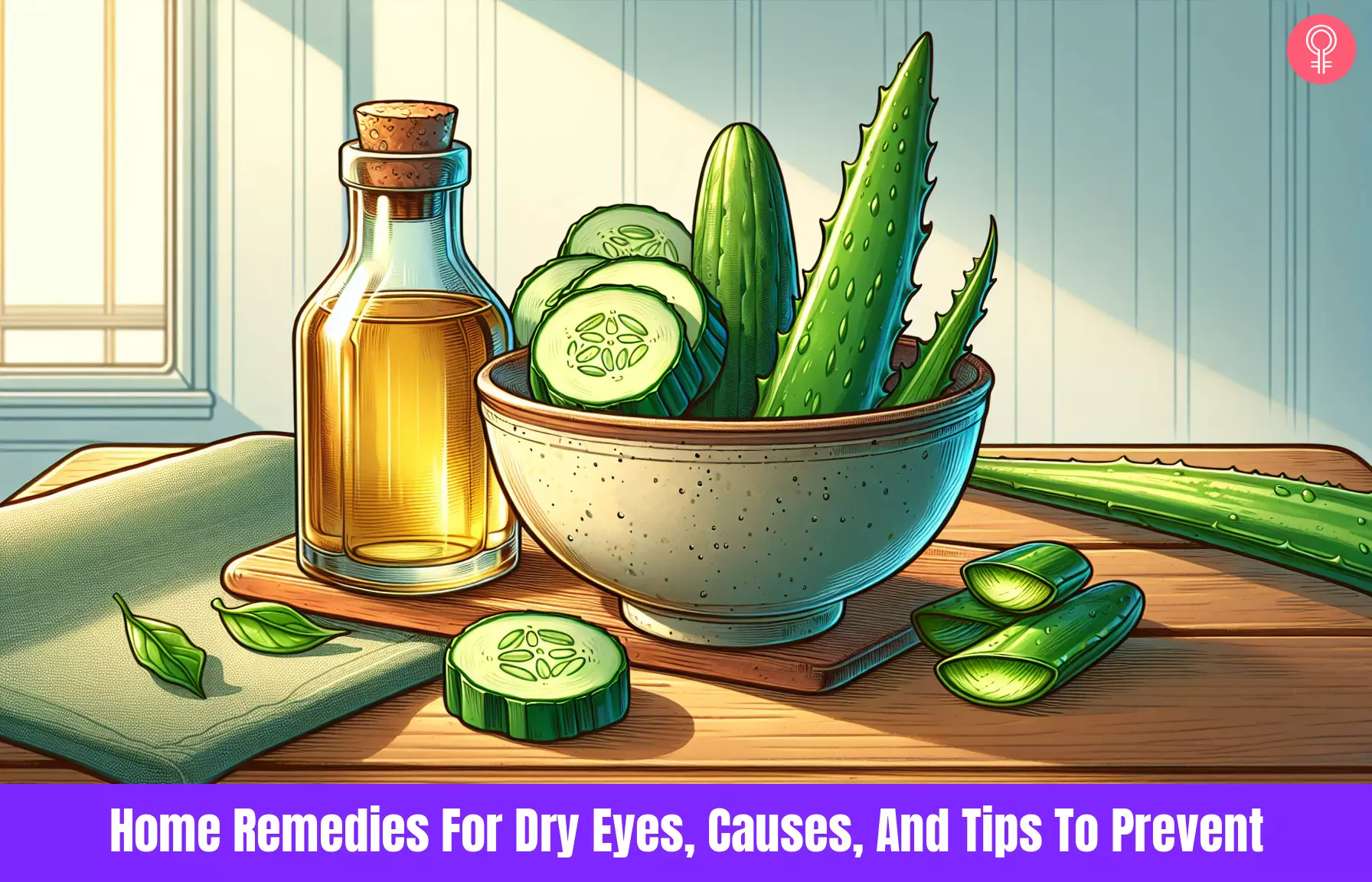
Image: Dall·E/StyleCraze Design Team
Learn simple home remedies to help soothe dry eyes. Get relief from the discomfort of dry eyes with easy tips. Check the following video to learn more!
Personal Experience: Source
StyleCraze's articles are interwoven with authentic personal narratives that provide depth and resonance to our content. Below are the sources of the personal accounts referenced in this article.
i. My dry eye storyhttps://medium.com/@ashley_coates/my-dry-eye-story-d67da74d377f
References
Articles on StyleCraze are backed by verified information from peer-reviewed and academic research papers, reputed organizations, research institutions, and medical associations to ensure accuracy and relevance. Read our editorial policy to learn more.
- Dry eye disease: when to treat and when to refer
https://www.ncbi.nlm.nih.gov/pmc/articles/PMC6202299/ - Sjögren’s Syndrome: More Than Just Dry Eye
https://www.ncbi.nlm.nih.gov/pmc/articles/PMC6482458/ - Patel, Vinay R., et al. “Castor oil: properties, uses, and optimization of processing parameters in commercial production.” Lipid insights 9 (2016): LPI-S40233.
https://www.ncbi.nlm.nih.gov/pmc/articles/PMC5015816/ - Goto, Eiki, et al. “Low-concentration homogenized castor oil eye drops for noninflamed obstructive meibomian gland dysfunction.” Ophthalmology 109.11 (2002): 2030-2035.
https://pubmed.ncbi.nlm.nih.gov/12414410/ - Mutalib, Haliza Abdul, et al. “A pilot study: the efficacy of virgin coconut oil as ocular rewetting agent on rabbit eyes.” Evidence-Based Complementary and Alternative Medicine 2015 (2015).
https://www.ncbi.nlm.nih.gov/pmc/articles/PMC4352907/ - Bae, Seok Hyun, et al. “Vitamin D supplementation for patients with dry eye syndrome refractory to conventional treatment.” Scientific reports 6.1 (2016): 1-10.
https://www.ncbi.nlm.nih.gov/pmc/articles/PMC5048427/ - Lee, Matthew Hao, Marc G. Sarossy, and Ehud Zamir. “Vitamin A Deficiency Presenting with ‘Itchy Eyes’.” Case reports in ophthalmology 6.3 (2015): 427-434.
https://www.ncbi.nlm.nih.gov/pmc/articles/PMC4777935/ - Ozen, Serkan, Murat Atabey Ozer, and Mehmet Orçun Akdemir. “Vitamin B12 deficiency evaluation and treatment in severe dry eye disease with neuropathic ocular pain.” Graefe’s Archive for Clinical and Experimental Ophthalmology 255.6 (2017): 1173-1177.
https://pubmed.ncbi.nlm.nih.gov/28299439/ - Tellez-Vazquez, Jesús. “Omega-3 fatty acid supplementation improves dry eye symptoms in patients with glaucoma: results of a prospective multicenter study.” Clinical Ophthalmology (Auckland, NZ) 10 (2016): 617.
https://www.ncbi.nlm.nih.gov/pmc/articles/PMC4827597/ - Mukherjee, Pulok K., et al. “Phytochemical and therapeutic potential of cucumber.” Fitoterapia 84 (2013): 227-236.
https://pubmed.ncbi.nlm.nih.gov/23098877/ - Kim, Eun Chul, Jun-Sub Choi, and Choun-Ki Joo. “A comparison of vitamin a and cyclosporine a 0.05% eye drops for treatment of dry eye syndrome.” American journal of ophthalmology 147.2 (2009): 206-213.
https://pubmed.ncbi.nlm.nih.gov/18848318/ - Srivastava, Janmejai K., Eswar Shankar, and Sanjay Gupta. “Chamomile: a herbal medicine of the past with a bright future.” Molecular medicine reports 3.6 (2010): 895-901.
https://www.ncbi.nlm.nih.gov/pmc/articles/PMC2995283/ - Singh, Ompal, et al. “Chamomile (Matricaria chamomilla L.): an overview.” Pharmacognosy reviews 5.9 (2011): 82.
https://www.ncbi.nlm.nih.gov/pmc/articles/PMC3210003/ - Badgujar, Shamkant B., Vainav V. Patel, and Atmaram H. Bandivdekar. “Foeniculum vulgare Mill: a review of its botany, phytochemistry, pharmacology, contemporary application, and toxicology.” BioMed research international 2014 (2014).
https://www.ncbi.nlm.nih.gov/pmc/articles/PMC4137549/ - Choi, Eun-Mi, and Jae-Kwan Hwang. “Antiinflammatory, analgesic and antioxidant activities of the fruit of Foeniculum vulgare.” Fitoterapia 75.6 (2004): 557-565.
https://pubmed.ncbi.nlm.nih.gov/15351109/ - El-Abbadi, Naglaa Hani, Maria Carlota Dao, and Simin Nikbin Meydani. “Yogurt: role in healthy and active aging.” The American journal of clinical nutrition 99.5 (2014): 1263S-1270S.
https://pubmed.ncbi.nlm.nih.gov/24695886/ - Vázquez, Beatriz, et al. “Antiinflammatory activity of extracts from Aloe vera gel.” Journal of ethnopharmacology 55.1 (1996): 69-75.
https://pubmed.ncbi.nlm.nih.gov/9121170/ - Woźniak, Anna, and Roman Paduch. “Aloe vera extract activity on human corneal cells.” Pharmaceutical biology 50.2 (2012): 147-154.
https://pubmed.ncbi.nlm.nih.gov/22338121/ - Hu, Yun, Juan Xu, and Qiuhui Hu. “Evaluation of antioxidant potential of Aloe vera (Aloe barbadensis Miller) extracts.” Journal of agricultural and food chemistry 51.26 (2003): 7788-7791.
https://pubmed.ncbi.nlm.nih.gov/14664546/ - SILVA, GABRIELA L., et al. “Antioxidant, analgesic and anti-inflammatory effects of lavender essential oil.” Anais da Academia Brasileira de Ciências 87.2 (2015): 1397-1408.
https://pubmed.ncbi.nlm.nih.gov/26247152 - Allergology/Postȩpy Dermatologii I Alergologii 30.3 (2013): 170.
https://www.ncbi.nlm.nih.gov/pmc/articles/PMC3834722/ - Lee, Soon-Hee, Yong Heo, and Young-Chul Kim. “Effect of German chamomile oil application on alleviating atopic dermatitis-like immune alterations in mice.” Journal of veterinary science 11.1 (2010): 35-41.
https://pubmed.ncbi.nlm.nih.gov/20195063/ - Viola, Publio, and Marzia Viola. “Virgin olive oil as a fundamental nutritional component and skin protector.” Clinics in dermatology 27.2 (2009): 159-165.
https://pubmed.ncbi.nlm.nih.gov/19167997/ - Bogani, Paola, et al. “Postprandial anti-inflammatory and antioxidant effects of extra virgin olive oil.” Atherosclerosis 190.1 (2007): 181-186.
https://pubmed.ncbi.nlm.nih.gov/16488419// - Kawakita, Tetsuya, et al. “Effects of dietary supplementation with fish oil on dry eye syndrome subjects: randomized controlled trial.” Biomedical Research 34.5 (2013): 215-220.
https://pubmed.ncbi.nlm.nih.gov/24190233/ - Cakiner-Egilmez, T. “Omega 3 fatty acids and the eye.” Insight (American Society of Ophthalmic Registered Nurses) 33.4 (2008): 20-5.
https://pubmed.ncbi.nlm.nih.gov/19227095/ - Liu, Aihua, and Jian Ji. “Omega-3 essential fatty acids therapy for dry eye syndrome: a meta-analysis of randomized controlled studies.” Medical science monitor: international medical journal of experimental and clinical research 20 (2014): 1583.
https://www.ncbi.nlm.nih.gov/pmc/articles/PMC4165511/ - Pinheiro, Jr MN, et al. “Oral flaxseed oil (Linum usitatissimum) in the treatment for dry-eye Sjögren’s syndrome patients.” Arquivos brasileiros de oftalmologia 70.4 (2007): 649-655.
https://pubmed.ncbi.nlm.nih.gov/17906762/ - Nejabat, Mahmood, et al. “Efficacy of green tea extract for treatment of dry eye and meibomian gland dysfunction; A double-blind randomized controlled clinical trial study.” Journal of clinical and diagnostic research: JCDR 11.2 (2017): NC05.
https://www.ncbi.nlm.nih.gov/pmc/articles/PMC5376801/ - Majtanova, Nora, Martin Cernak, and Juraj Majtan. “Honey: a natural remedy for eye diseases.” Complementary Medicine Research 23.6 (2016): 364-369.
https://pubmed.ncbi.nlm.nih.gov/27924791/ - Majtánová, N., et al. “The potential use of honey in ophthalmology.” Ceska a slovenska oftalmologie: casopis Ceske oftalmologicke spolecnosti a Slovenske oftalmologicke spolecnosti 69.3 (2013): 128-132.
https://pubmed.ncbi.nlm.nih.gov/24437960/ - Wong, Daniel, et al. “Treatment of contact lens related dry eye with antibacterial honey.” Contact Lens and Anterior Eye 40.6 (2017): 389-393.
https:/pubmed.ncbi.nlm.nih.gov/29032921 - Olson, Mary Catherine, Donald R. Korb, and Jack V. Greiner. “Increase in tear film lipid layer thickness following treatment with warm compresses in patients with meibomian gland dysfunction.” Eye & contact lens 29.2 (2003): 96-99.
https://pubmed.ncbi.nlm.nih.gov/12695712/ - The Association Between Dry Eye and Sleep Quality Among the Adult Population of Saudi Arabia
https://www.ncbi.nlm.nih.gov/pmc/articles/PMC8969758/
Read full bio of Dr. Jennifer Tsai
Read full bio of Shaheen Naser
Read full bio of Arshiya Syeda
Read full bio of Dipti Sharma









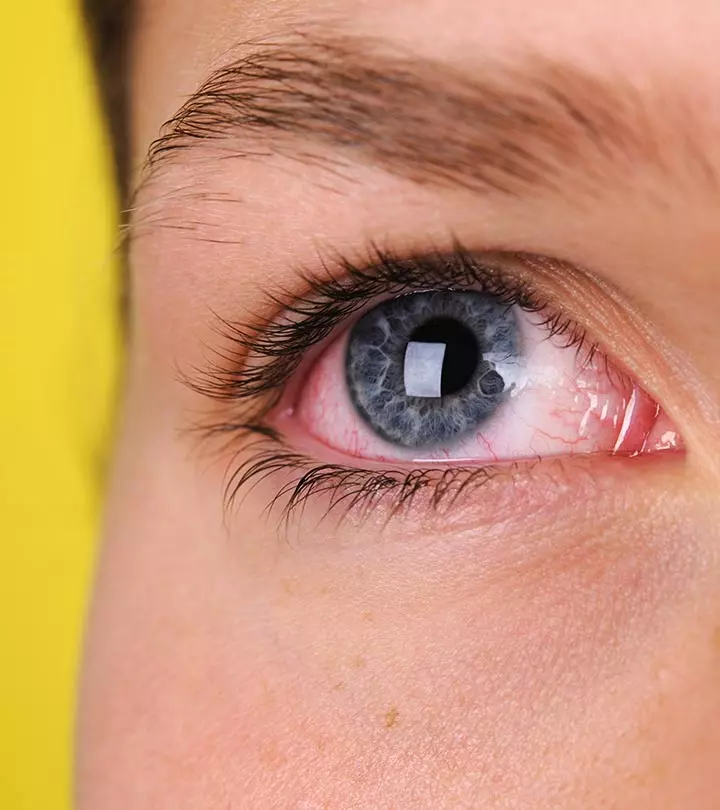







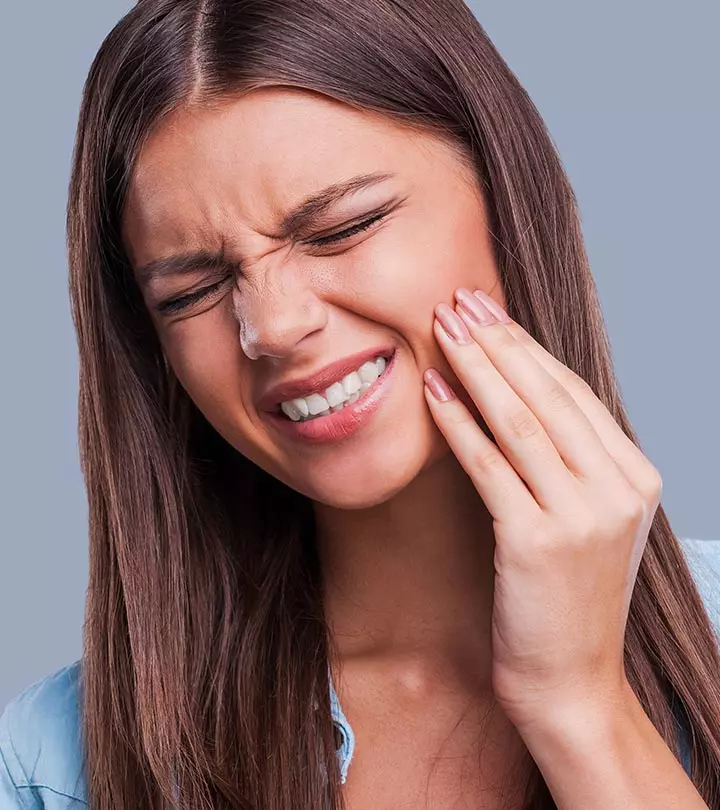
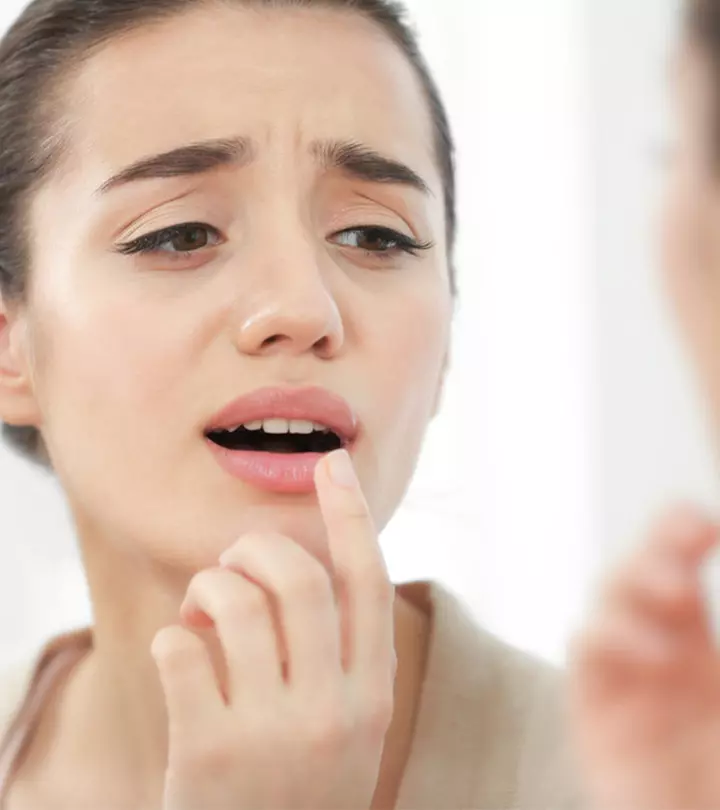




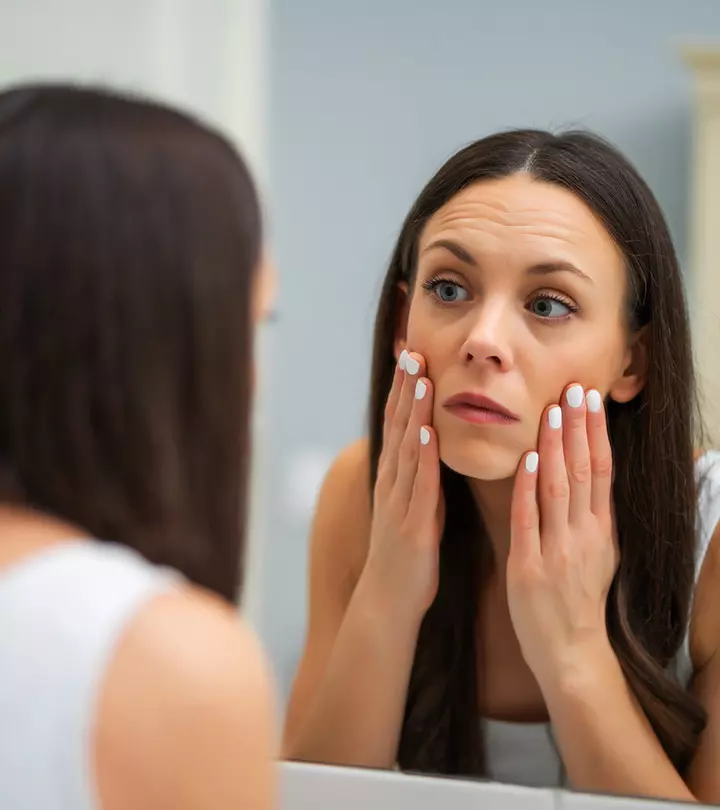

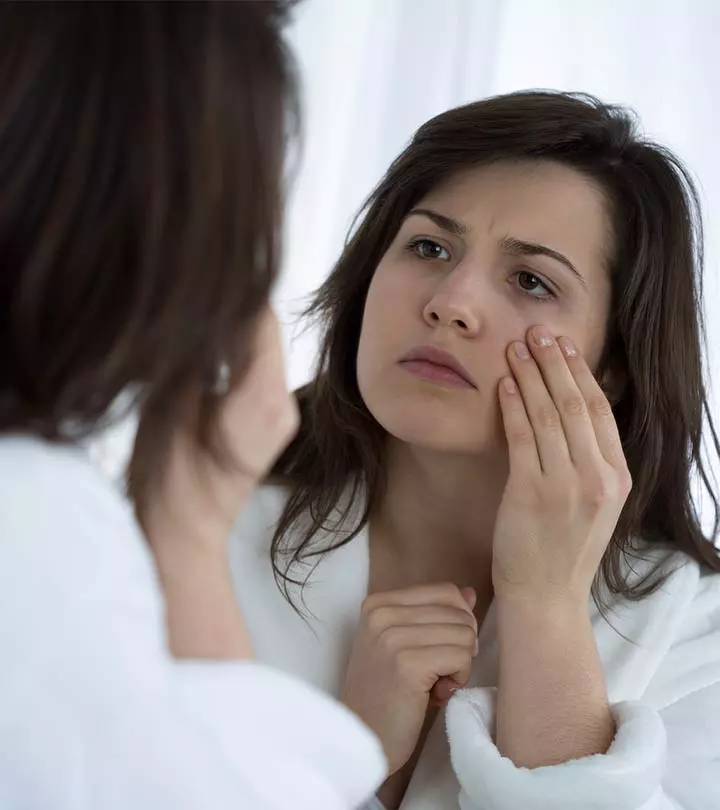
Community Experiences
Join the conversation and become a part of our empowering community! Share your stories, experiences, and insights to connect with other beauty, lifestyle, and health enthusiasts.